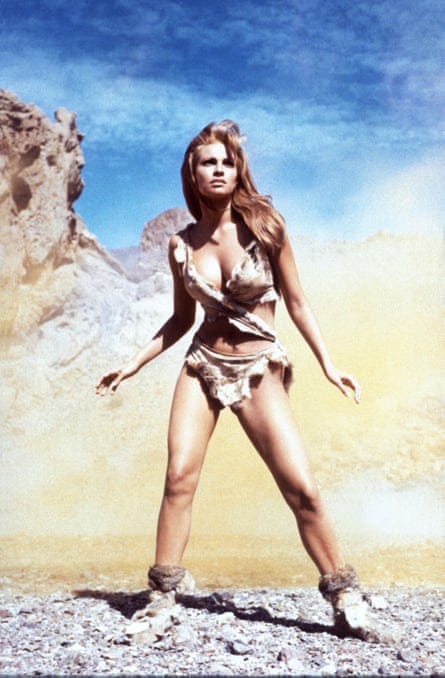
Parsha Summary: Matriarch Sarah finally succumbs to old age but randy old Abraham isn’t done fathering a nation. He sidles up to ex-mistress Hagar and changes her name to Keturah hoping no one would notice. She promptly delivers a further six children for the frisky centenarian and then he dies. A heartbroken Isaac, mourning the loss of his mother, marries Rebecca, a distant cousin with big enough jugs to quench the thirst of Abraham’s manservant, Eliezer. They live happily ever after.
Sarah, mother of a nation and biblical sex symbol dies at 127.
Sarah, formerly known as Sarai, who died aged 127, barely spoke as she sat in the back of Abraham’s caravan, but attained instant sex-symbol status from the Egyptians, dressed in a fur-lined bikini. The image made its imprint in popular Egyptian culture and the publicity poster sold millions. The Caanite critic Abubaker ben Ammon described the Ur beauty as “a lioness – fierce, passionate and dangerously physical”.
The tale of a humble brother and sister traveling the desert coexisting with famine and biblical plagues, was Sarah’s breakthrough moment– and the beginning of a largely unsuccessful battle she waged to be taken seriously as a wife and future mother of a nation. When she arrived at the palace, she told the pharaoh she had been thinking about her ‘brother’ selling her for a dozen camels. She recalled his response as: “Thinking? What do you mean you’ve been thinking? Just put on this sexy slip and bend over – that’s all we need from you.”
Sarah had to contend with critics who believed her looks to count for more than any ability to birth children.
Nevertheless, Sarah later showed her aptitude for comedy when she laughed in the face of G-d after He told her she would have a son at 87. Her performance won her a Desert Globe Best Actress award. In her acceptance speech, Sarah talked daringly about having a miracle baby that required no medication for pain and took absolutely no time for delivery. “He just popped out. No fuss. One day I was childless and the next…poof…there was Isaac!”
She increasingly took roles as the straight man to Abraham’s funny guy persona. She showed her performing mettle when she made her Egyptian stage debut, in the musical Camels Ate My Kebab at the Palace Theatre.
“When she makes her first appearance in a low-cut safari gown, her attributes can be seen all the way to the oasis,” wrote the Moab Times critic Solomon ben Hagar, unable to ignore what Sarah brought to the stage visually.
Around that time, Sarah said: “I have exploited being a sex symbol and I have been exploited as one. I wasn’t unhappy with the sex goddess label. It kept me young and made me feel wanted. I was unhappy with the way some people tried to diminish, demean and trivialise anything I did professionally. My candle-making business suffered from the negative press.”
She was born Sarai, daughter of Terah in Ur and step-sister to Abram. Her father, an idolatrous priest, manufactured idols for a living. “I came from a glamorous family. Even my grandmother was a glamorous woman,” she said. When Sarah was two, the family moved to Canaan, and, five years later, she joined the city’s junior theatre as well as starting belly-dancing classes. At 12, she entered and won, the Miss Caanite Beauty Contest which attracted unwanted attention from many suitors.
She said her father was volatile and terrifying, and she never saw any tenderness between her parents. One escape from this unsettled childhood came through putting on plays in the tent for friends and visiting herdsmen using blankets for curtains.
After giving birth to Isaac, patriarch of Israel, she left her husband, intending to follow her acting ambitions in Egypt. In the event, she worked as a model and cocktail waitress in downtown Cairo before returning to Canaan and the loving embrace of Abraham.
She had fallen out with Abraham over a number of issues, for example refusing to have a threesome with his mistress, Hagar. “From nearly the first day, we were at loggerheads,” she recalled of Hagar, “and no professional relationship, no working relationship, was ever established.” She would later banish Hagar to the desert alongside her son, Ishmael. An action she would regret but felt fully justified at the time. When asked how to prevent men from straying, she said, “Shoot them in the legs or buy them a mistress.”
A few years earlier, she had grabbed headlines when she was convicted of assaulting an Egyptian camel inspector after being stopped for a dung littering violation. “He was unbelievably rude,” she said. “He used language that no man should use toward a woman – and for no reason, except that the tag on my camel had expired. I didn’t litter; I didn’t do anything. And when he became rude, I just forgot he was an inspector and looked at him as just a man who was insulting me. So I lifted my arm, but I never hit him. I should have, though.”
Sarah is survived by her husband, Abraham, and her son, Isaac, and stepson, Ishmael.






"Language that no man should use toward a woman." That's serious.